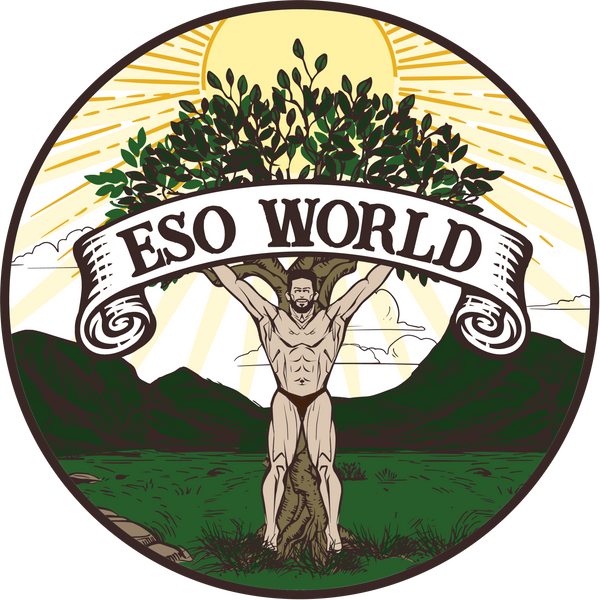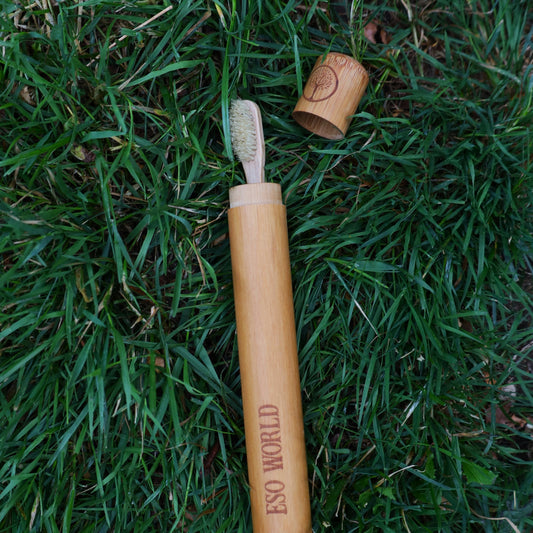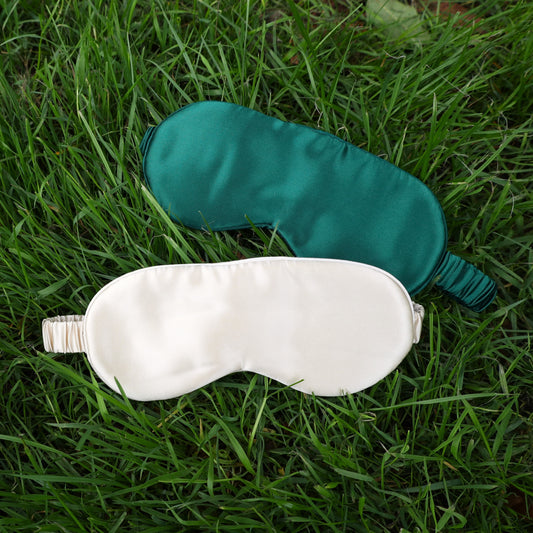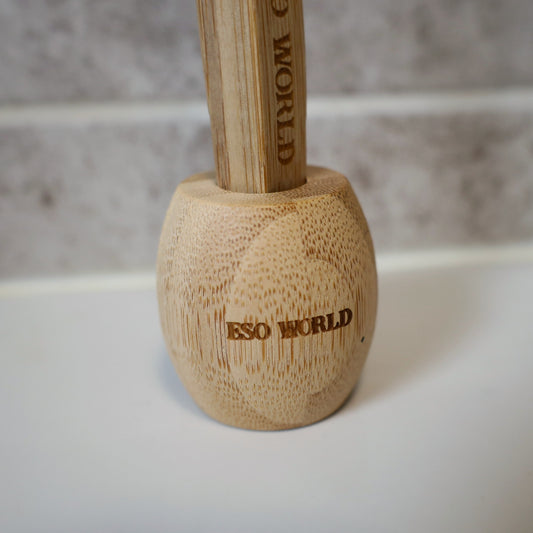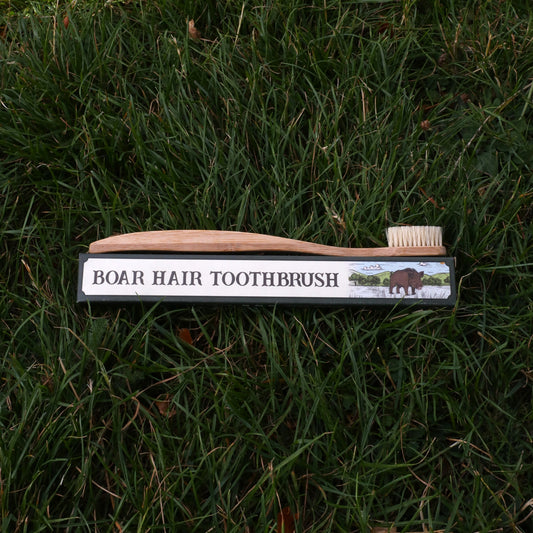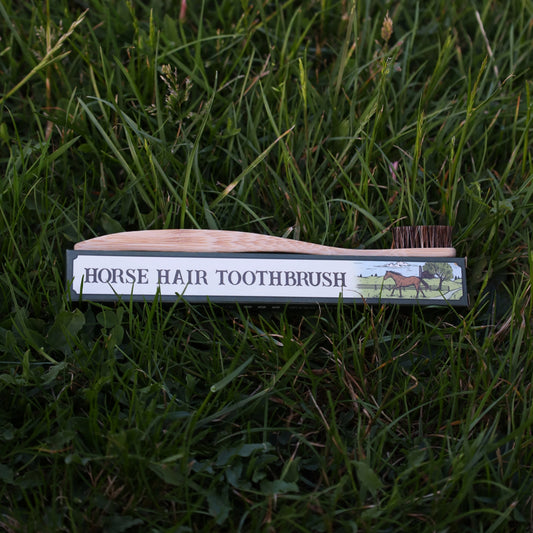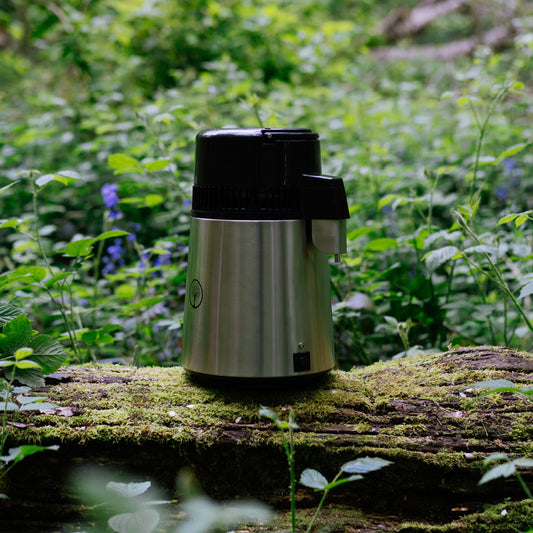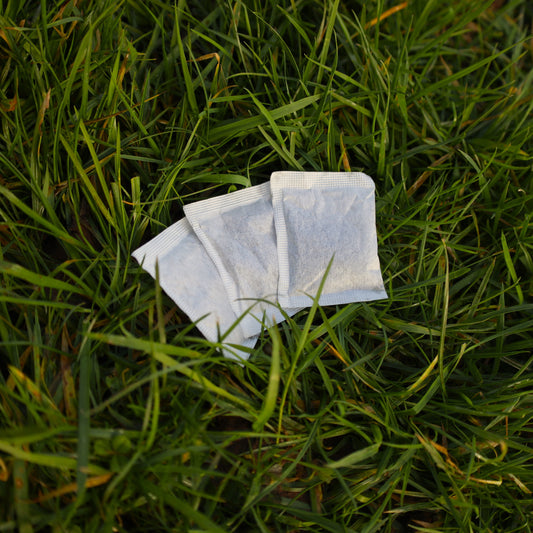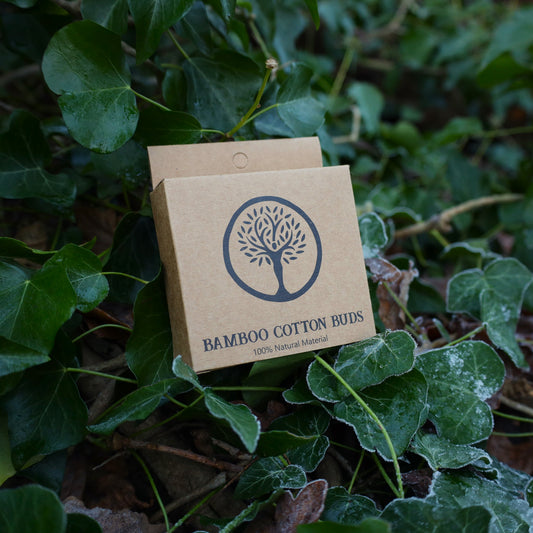Eso Standards
Our vision for an Eso world is one with minimal processed ingredients, no plastics, and absolutely nothing “bad for you.” While it’s not always easy to define what “bad” means for everyone—since there’s no one-size-fits-all answer—we believe that natural, low-ingredient products are usually the best way forward.
Before any product reaches you, we make sure it’s been thoroughly researched. We talk directly to suppliers about their manufacturing processes, look for organic options wherever we can, and read up on studies for each ingredient. If we find anything that could be harmful to your health, we won’t sell it—It’s really that simple. (it’s a shame this isn’t more common, but here we are)
We will never sell products that fall into any of the following categories:
-
Carcinogenic: Linked to causing cancer -
(e.g., formaldehyde, benzene, acrylamide, polycyclic aromatic hydrocarbons (PAHs), ethylene oxide, styrene, trichloroethylene (TCE), 1,4-dioxane, parabens, coal tar dyes, chromium VI, talc when contaminated with asbestos, nitrosamines, benzophenone). -
Hormone Disrupting: Substances that interfere with your natural hormonal balance -
(e.g., phthalates (DEHP, DBP, BBP), BPA, bisphenol alternatives (BPS, BPF), parabens, PFAS, triclosan, octinoxate, oxybenzone, synthetic musks (galaxolide, tonalide), pesticides (atrazine, DDT), flame retardants (PBDEs, TBBPA), nonylphenols, perchlorates, dioxins). -
Damaging to Cells: Substances that harm the building blocks of your body -
(e.g., hydrogenated oils, acrylamide, polycyclic aromatic hydrocarbons (PAHs), free radicals from synthetic preservatives (BHA, BHT), heavy metals (lead, cadmium, mercury), glyphosate, formaldehyde-releasing agents (DMDM hydantoin, imidazolidinyl urea), ethylene oxide). -
Made with Unnatural Processes: Products created using harmful or overly synthetic methods -
(e.g., solvent-extracted oils, chemically bleached ingredients, ethoxylated compounds (PEGs), synthetically hydrogenated fats, ingredients processed with alkylphenols, plastic-derived fillers or additives, genetically modified organisms (GMOs) with significant chemical interventions). -
Neurotoxic: Harmful to the brain or nervous system -
(e.g., toluene, aluminum compounds (aluminum chlorohydrate), lead, mercury, fluoride, synthetic solvents (xylene, methylene chloride), organophosphate pesticides, styrene, benzene, propylene glycol). - Thyroid Damaging: Substances that interfere with thyroid function - (e.g., triclosan, perchlorates, brominated flame retardants, PFAS, soy isoflavones in high amounts, iodine disruptors (fluoride, chlorine in excess), polychlorinated biphenyls (PCBs)).
- Synthetic Fragrances: known for hidden chemicals and umbrella terms like "Parfum" or "Fragrance," which allow companies to include virtually anything without full disclosure - (e.g., artificial musks (galaxolide, tonalide), phthalates as fixatives, synthetic vanillin, methyl ionone, benzyl salicylate, limonene when oxidized, coumarin).
- Bioaccumulative Contaminants: Substances that build up in the body over time, posing long-term risks - (e.g., PFAS, lead, mercury, cadmium, arsenic, phthalates, synthetic musks, PCBs, brominated flame retardants (PBDEs), dioxins, nonylphenols, polycyclic aromatic hydrocarbons (PAHs), hexavalent chromium, benzotriazoles, octinoxate, oxybenzone).
We’ll do everything we can to reduce the presence of products that fit into these categories with hopes to eventually remove them entirely when we have the means to do so:
- Contains plastic - We understand that plastic isn’t ideal, but sometimes it’s unavoidable. When it is used, we make sure to choose the best quality available. While there’s no such thing as “good” plastic, some options are definitely better than others (e.g., polypropylene (PP) vs. PVC). As we continue to grow, we’re working toward designing our own products and phasing out plastic altogether.
-
Non-Organic - We always aim for the highest quality ingredients, and organic certification is the deciding factor when it’s available. However, there are times—particularly with certain essential oils—when organic options simply aren’t an option. These ingredients are often produced in small batches by skilled artisans or farmers, and the cost of organic certification is usually too high for them to manage. In those cases, we make sure to source the highest quality available.
The Eso Standards are a work in progress and will be updated as new information becomes available. We're always learning and adapting to make sure we're offering the best we can.
Last Updated: 8th December 2024
All Products
-
Shower Filter
Regular price £39.99 GBPRegular priceUnit price / per -
Bamboo Toothbrush Case 2.0 | Travel Case
Regular price £4.79 GBPRegular priceUnit price / per -
Silk Sleep Mask | 100% Mulberry Silk
Regular price £18.99 GBPRegular priceUnit price / per -
Bamboo Toothbrush Holder | Plastic Free
Regular price £3.99 GBPRegular priceUnit price / per -
Copper Tongue Scraper | Plastic Free
Regular price £3.99 GBPRegular priceUnit price / per -
Boar Bristle Toothbrush | Plastic Free
Regular price £2.99 GBPRegular priceUnit price / per -
Horsehair Toothbrush | Plastic Free
Regular price £2.99 GBPRegular priceUnit price / per -
Blue Light Blocking Glasses | Red Lens
Regular price £34.79 GBPRegular priceUnit price / per -
Water Distiller | Stainless Steel
Regular price £149.99 GBPRegular priceUnit price / per£199.99 GBPSale price £149.99 GBPSale -
Activated Carbon Filter for Water Distiller | 120 pieces
Regular price £28.99 GBPRegular priceUnit price / per -
Natural Charcoal Water Filter Stick | Two Sticks | 6-12 Month Use Each
Regular price £12.49 GBPRegular priceUnit price / per -
Organic Cotton Gym Bag | Plastic Free | Designed for Training, Travel, Everyday
Regular price £34.79 GBPRegular priceUnit price / per -
Cotton Buds CLEARANCE | 10 packs (1000pcs)
Regular price £9.99 GBPRegular priceUnit price / per
Blog posts
View all-
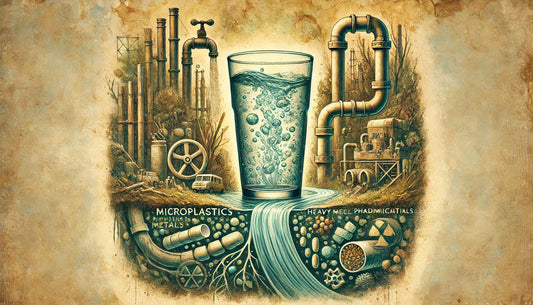
Tap Water Toxic? (in-depth overview)
Is Tap Water Toxic? Is Tap Water Toxic? Tap water is the under-celebrated hero of modern life: it rushes from our faucets, letting us drink, cook, and wash without thinking...
Tap Water Toxic? (in-depth overview)
Is Tap Water Toxic? Is Tap Water Toxic? Tap water is the under-celebrated hero of modern life: it rushes from our faucets, letting us drink, cook, and wash without thinking...
-

Detox your Social Sedia to Reclaim your Mind an...
In a world where our phones are practically glued to our hands, social media can feel like an unavoidable part of life. But just as we detox our bodies from...
Detox your Social Sedia to Reclaim your Mind an...
In a world where our phones are practically glued to our hands, social media can feel like an unavoidable part of life. But just as we detox our bodies from...
-

Taking Effective Microbreaks
Life's too short to spend hunched over a desk for eight hours straight. The secret to staying sharp and focused isn’t grinding away without pause; it’s mastering the art of...
Taking Effective Microbreaks
Life's too short to spend hunched over a desk for eight hours straight. The secret to staying sharp and focused isn’t grinding away without pause; it’s mastering the art of...
-

Which Air Filters Should I Use? (In-Depth Overv...
Which Air Filters Should You Use? Which Air Filters Should You Use? Indoor air quality is a critical factor in overall health—arguably as important as the water you drink or...
Which Air Filters Should I Use? (In-Depth Overv...
Which Air Filters Should You Use? Which Air Filters Should You Use? Indoor air quality is a critical factor in overall health—arguably as important as the water you drink or...
-
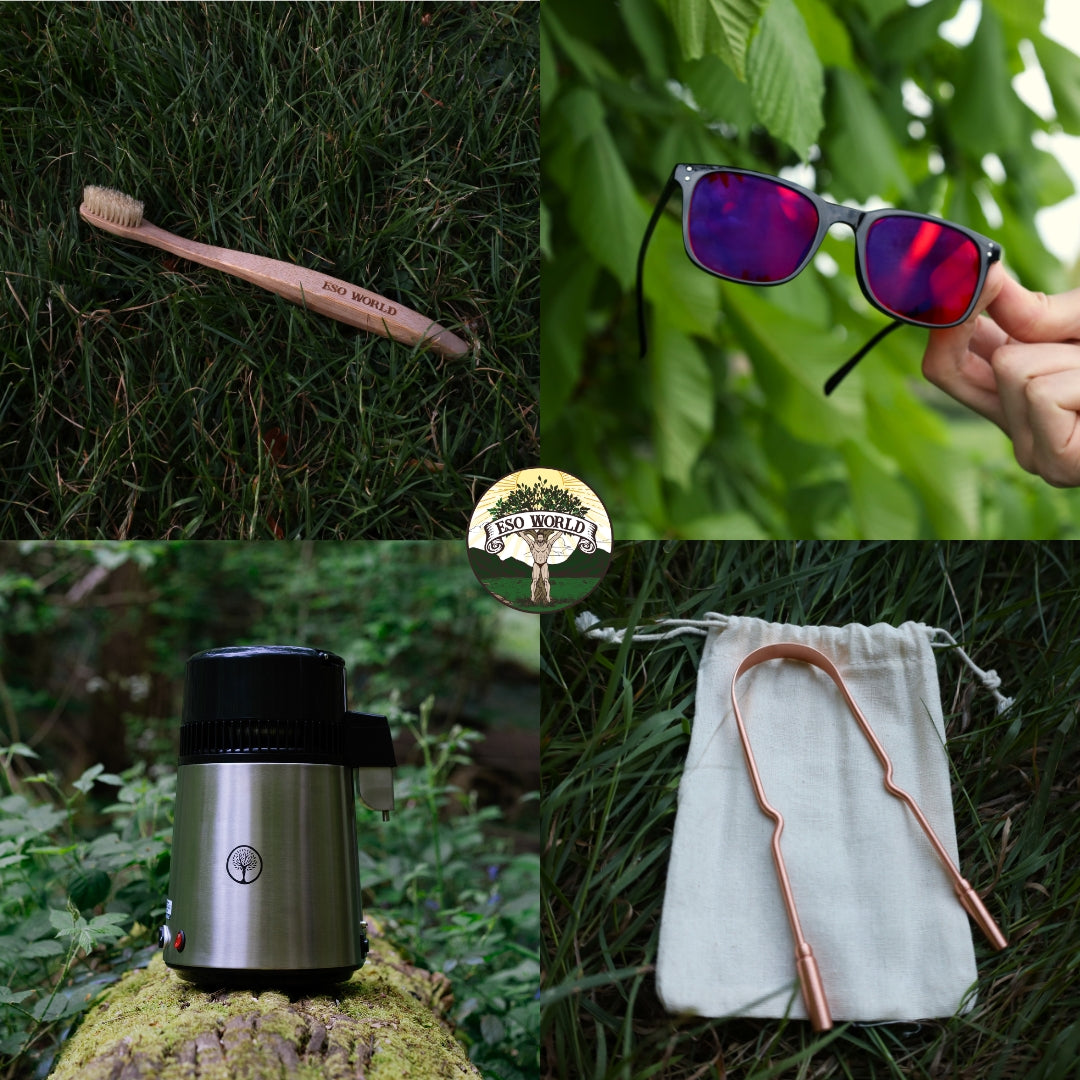
All Products
All our Eso-Friendly products, in one place!

